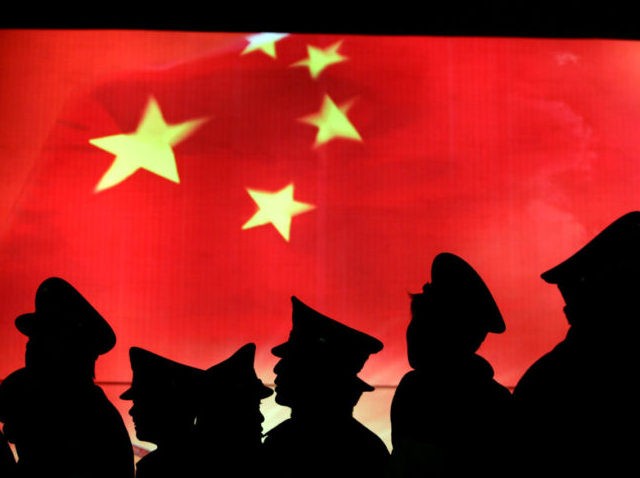China’s Corrupt Ruling Class Turns to ‘Love Hospitals’ and ‘Mistress Dispellers’ to Control Adultery Epidemic

China Photos/Getty
China’s President Xi Jinping and his elite inner circle love to posture as gallant corruption fighters, but the truth is that the extent of corruption in Chinese politics is kept secret from the masses, and from foreign observers, so Xi’s claims of success at cleaning up the system are mostly political spin.
A bit of the truth leaks out in the BBC’s report on the hot new “mistress dispelling” industry in China – a service that helps rich and powerful Chinese men get rid of inconvenient mistresses.
A married woman who took advantage of the “Weiqing Love Hospital” described the service as a combination of extensive marriage counselling, including lessons on “positivity and how to be a better, more dutiful wife,” plus strongarm tactics in which “operatives” were sent to “persuade” her husband’s 24-year-old secretary that “she could do better than hang around with a man twice her age.”
This package of services is described as costing thousands of dollars, but the BBC does not reveal whether the goon squad sent to “persuade” the secretary cost more than the marriage counselors. There is also no mention of whether Mr. X attended any of the sessions at which Mrs. X was taught how to save her marriage by becoming a more dutiful wife. Evidently, part of the “mistress dispelling” process involves reminding women that under Chinese divorce law, their husbands don’t have to part with money or assets they held before the marriage began, and the husband’s family usually gets custody of the children.
Clinic co-founder Shu Xin was coy about exactly how mistresses are “dispelled,” discussing only four of the 33 techniques he said he has developed. The four methods he was willing to talk about are amusingly underhanded: “persuading the mistress to fall in love with someone else, getting the husband’s boss to relocate him to a different city, getting parents or friends to intervene, and attempting to disgust the mistress by describing the husband’s rotten character and nasty hereditary diseases.”
The other 29 techniques are trade secrets that could not be discussed with the press, which is rather ominous when one of the techniques Shu was prepared to discuss involves convincing mistresses that their married paramours are rotten S.O.B.s teeming with communicable diseases.
Another “mistress dispeller” spoke of hiring private detectives to gather evidence that the errant husbands and their mistresses are cheating on each other as well. They resort to outright entrapment if they can’t catch the adulterer or his mistress fooling around with other people. Entrapping the women is said to be exceptionally easy, since as one operative put it, “most of the mistresses are after financial rewards.”
The mistresses are also easy scapegoats for adultery – they are portrayed as the ones violating the standards of marriage, not the errant husbands. Coupled with marriage counseling that heavily implies the wife is at fault when their husbands seek the affection of other women, it seems very little shame, blame, or expense is directed at the men.
The Love Hospital claims to have served over a million clients over the past 17 years. The practice is so widespread that a special Chinese euphemism has appeared for mistresses: “little thirds.” Later in the BBC article, a survey is cited that discovered 95 percent of the officials convicted in President Xi’s anti-corruption crusade hat least one mistresses. The People’s Daily even whipped up a map of adultery hotspots.
Adultery among the rich and powerful is not a new problem in China – you can find articles about it dating back to the Eighties, and the BBC mentions Chairman Mao considered the practice of wealthy men keeping concubines “degenerate” and made it illegal before he died in the Seventies. The persistence of the practice on such an epic scale, an epidemic of mistresses treated by “hospitals” that demand very little of their male clients, casts a skeptical light on China’s pretensions of developing clean, centralized government.





Comments are closed.